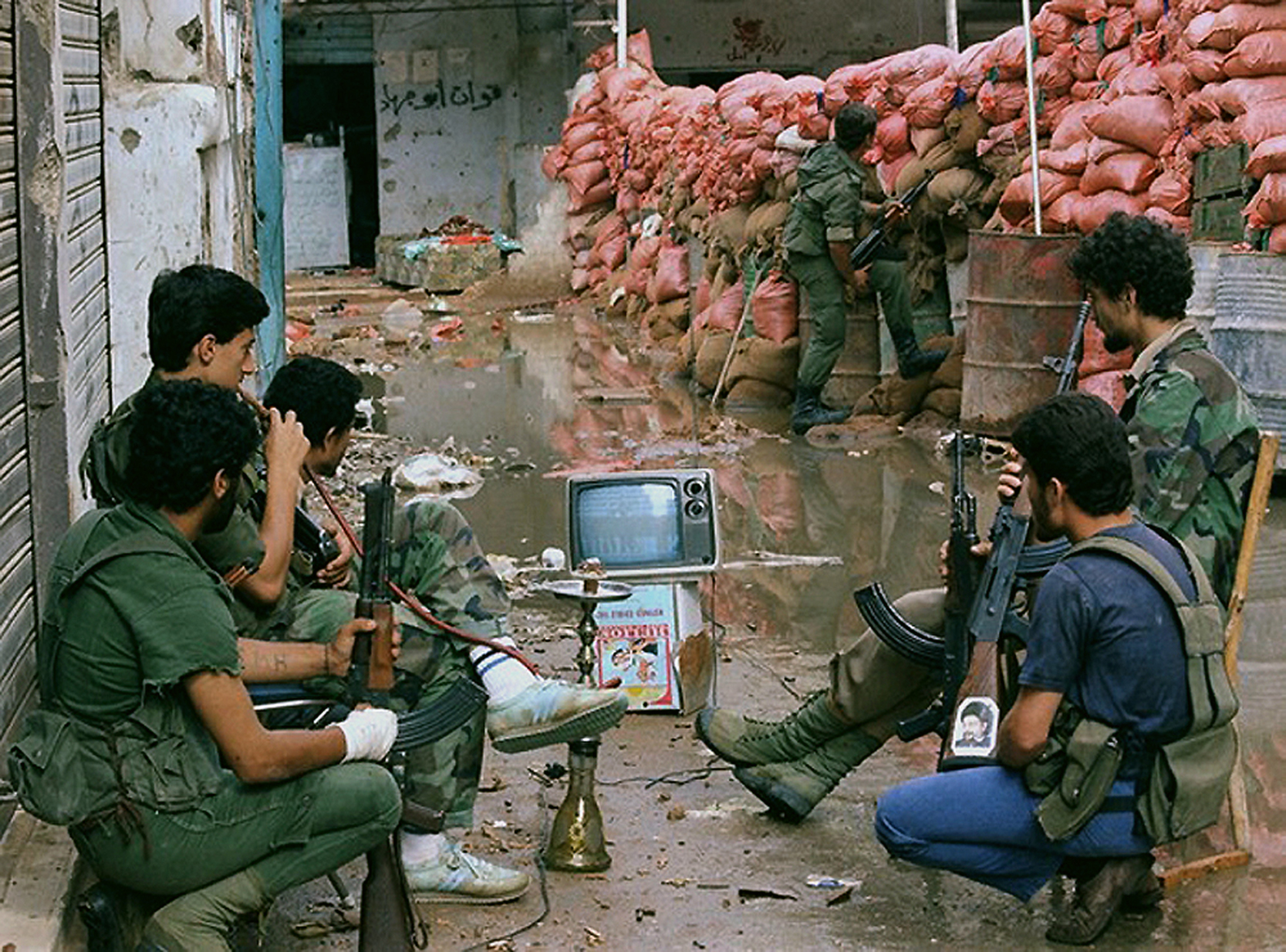At risk of outing myself as a science fiction nerd, I often find myself thinking about how some themes portrayed in science fiction accurately reflect dilemmas faced in the profession of arms. This is particularly apparent when considering emerging trends in warfare; like the increased use of robots and AI, bioenhancement and nanotechnology. I’m not going to discuss the benefits of reading science fiction for military officers because Major General Ryan has previously addressed this topic. Instead, this post explores how to draw lessons from a far more lowbrow source of science fiction: the small screen.
To do this I’d like to introduce a concept called “Lazy PME,” that I use to bolster my own Professional Military Education (PME). Lazy PME is the use of mediums such as pop culture, television and movies to draw out relevant professional development lessons and discussions. In short, it’s an opportunity to further oneself professionally without having to put in any special effort. Whilst the PME purists will probably find this concept completely and utterly reprehensible, lazy PME is a ‘gateway drug’ for those who may not be ready to throw themselves immediately into a peer reviewed journal or textbook. It’s also a great tool for the avid PME participant to compliment their voracious consumption of warfighting blogs and military history books.

Militiamen conducting some ‘Lazy PME’ in Beirut in 1986. Source: ABOU KHAROUB/AFP/Getty Images
Having explained the concept, below is a short and by no means exhaustive collection of televised science fiction episodes that are good opportune targets for lazy PME. Included are some thoughts on generating professional discussion relevant to these examples.
TV Series: Black Mirror

Scene from Black Mirror ‘Men Against Fire’. Source: Netflix
Episode: Season 3, Episode 5 ‘Men Against Fire’.
Themes: Psychological willingness of soldiers to engage and kill the enemy; Human enhancement.
Description: Set in a dystopian future, this episode follows a small team of soldiers who conduct operations to seek and destroy mutant looking creatures called ‘roaches’. All of the soldiers are issued a neural-implant at time of enlistment which enhances the processing of their senses and provides instant data via augmented reality.
Questions for Discussion:
Over the course of this episode questions are raised about the psychological impact of killing an enemy.
- Is it easier to do so when the enemy is dehumanised?
- What are some of the negatives of dehumanising an enemy?
- What are the ethical and practical implications of human bioenhancement to give soldiers a greater advantage on the battlefield?
Fun fact: the title Men Against Fire is actually a reference to BG S.L.A. Marshall’s classic book Men Against Fire: The Problem of Battle Command.
TV Series: Star Trek: The Next Generation

The USS Enterprise bridge crew gather around the
screen in Star Trek: The Original Series. Source: Paramount
Episode: Season 5, Episode 1 ‘Redemption: Part II’
Themes: Human/AI C2 teaming.
Description: In the midst of an intergalactic conflict, Captain Jean Luc Picard gives his second officer, Data, command of a starship. Data however is an android. His predominately human crew have reservations about whether the impact of his decisions as a machine will result in life or death for them, and does he understand the implications of this?
Questions for Discussion:
Human-machine teaming is something that is closer than many would think.
- What are some of the implications for using AI in a command and control function?
- Is it an advantage that AI could continue to function even when a commander is tired or stressed?
- What are the ethical issues that come as a result of having human lives under the control of a machine?
TV Series: Star Trek: The Original Series
Episode: Season 1, Episode 23 ‘A Taste of Armageddon’
Themes: Society’s willingness to engage in conflict when detached from the horrors of war.
Description: The crew of the USS Enterprise visit a planet whose people fight a computer-simulated war against a neighbor planet. Although the war is fought via computer simulation, the citizens of each planet have to submit to real executions inside ‘disintegration booths’ to meet the casualty counts of the simulated attacks.
Questions for Discussion:
This episode raises questions about waging war in an environment when the true destruction of war is removed. As stated by Captain Kirk during the episode ‘by taking away the horrors of war, the two societies have little reason to end it’.
- Can any parallels be drawn to the conflicts we are involved in today?
- Are there similarities in this episode to contemporary armed drones being piloted from the other side of the world and engaging in combat, with the citizens of the country at war never really seeing the results first hand?
It is important to remember when pursuing lazy PME that one must do more than simply consume their chosen media. It’s important to engage, think and be challenged by it. Whether this is by means of self reflection, group discussion, or putting pen to paper is completely up to the individual. Also, if science fiction isn’t your thing, find something else that works for you.
So rather than settling in on the couch tonight to watch My Kitchen Rules, why not pick something that will entertain, as well as challenge you professionally?
About the Author:
Captain Thomas Bittner is a Royal Australian Armoured Corps officer currently posted to the Royal Military College – Duntroon.

